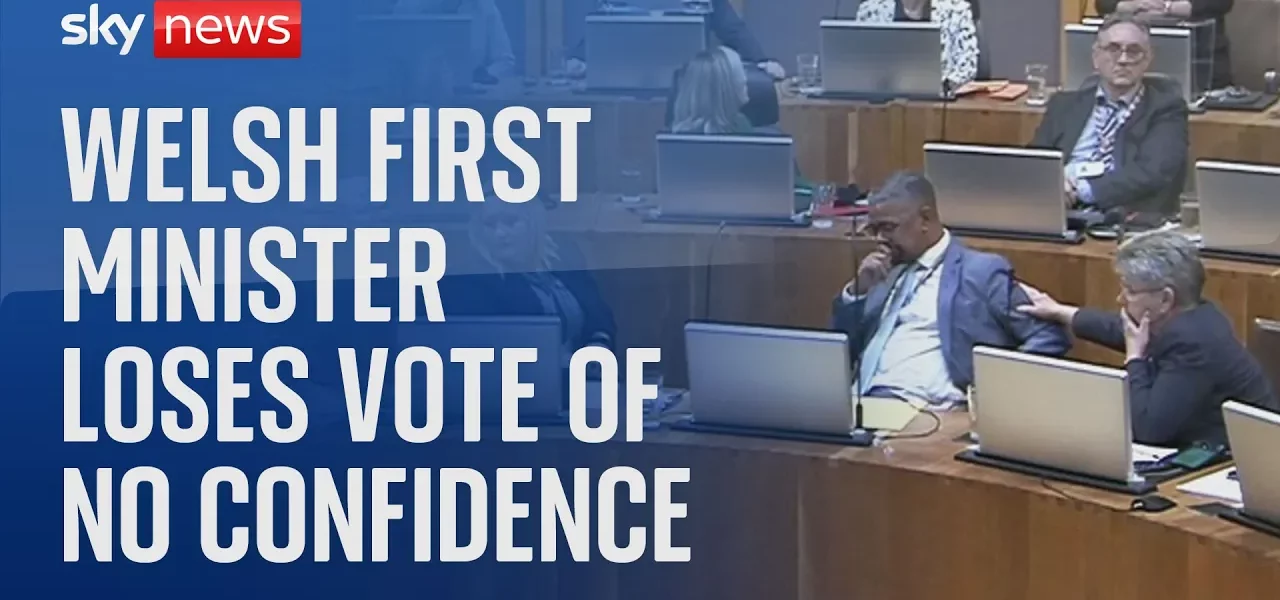Vote of No Confidence Against Vaughan Gething: An In-Depth Analysis

This article provides a comprehensive overview of the vote of no confidence against Vaughan Gething, the First Minister of Wales. We explore the background incidents leading to this political maneuver, the key players involved, and the potential implications for Welsh politics and the upcoming general election.
Introduction
The political landscape in Wales has been shaken by a series of events culminating in a vote of no confidence against First Minister Vaughan Gething. This decision, driven by allegations of misconduct and questionable judgment, highlights the tensions within Welsh politics, particularly regarding the Labour party’s governance. In this article, we delve into the critical incidents that have led to this moment, the figures involved, and the broader implications for both the Labour party and the Welsh electorate.
The Background of the Vote of No Confidence
The vote of no confidence has emerged as a significant political event in Wales, driven by a litany of incidents over recent months. At the heart of this situation is a donation made to Vaughan Gething’s leadership campaign, amounting to £200,000 from a company linked to an individual with a criminal record concerning environmental offenses.
Key Incidents Leading to the Vote
- Controversial Donation: The £200,000 donation has raised eyebrows, especially given the donor’s criminal history related to environmental crimes, such as illegal waste dumping.
- Pressure to Return Funds: Gething has faced mounting pressure to return the donation, which he has resisted, claiming no rules were broken.
- Text Message Scandal: During the COVID-19 pandemic, Gething was involved in deleting text messages, which were later leaked to the media, further complicating his position.
The Political Fallout
The motion of no confidence, initiated by the Welsh Conservatives, has sparked intense debate within the Senedd (Welsh Parliament). Andrew RT Davies, leader of the Welsh Conservatives, has emphasized that this motion is not merely a political tactic but a necessary step towards accountability and transparency.
Responses from Political Leaders
- Andrew RT Davies: Stressed the importance of integrity in leadership, asserting that Gething’s actions demonstrate a lack of judgment.
- Leader of Plaid Cymru: Criticized Gething’s contrition and judgment, suggesting that he lacks the necessary skills for the role of First Minister.
- Vaughan Gething: Defended his actions, expressing that he has nothing to hide and emphasizing the emotional toll the situation has taken on him.
The Current Political Landscape
The Labour party currently holds 30 of the 60 seats in the Senedd, making the outcome of the vote crucial for Gething’s leadership. With two Labour members absent from the vote, the stakes are even higher. If Gething loses, he would technically lack the confidence of parliament, which could lead to significant repercussions for his leadership.
Implications for the Labour Party
- Pressure on Leadership: The ongoing controversy places immense pressure on Gething to maintain his position and the party’s credibility.
- Impact on Upcoming Elections: The fallout from this vote could influence voter sentiment in the upcoming general elections, as local issues often resonate with constituents.
- Internal Party Dynamics: The situation may lead to calls for a leadership change within the Labour party if Gething is unable to navigate this crisis effectively.
Conclusion
The vote of no confidence against Vaughan Gething serves as a critical juncture for Welsh politics, raising questions about leadership, accountability, and the future of the Labour party in Wales. As the political landscape evolves, it remains to be seen how this situation will affect voter behavior in the upcoming general elections. For those interested in the intricacies of Welsh politics, this ongoing saga highlights the delicate balance of power and the importance of transparency in governance. We encourage readers to stay informed about this developing story and its implications for the future of Wales.
“`




